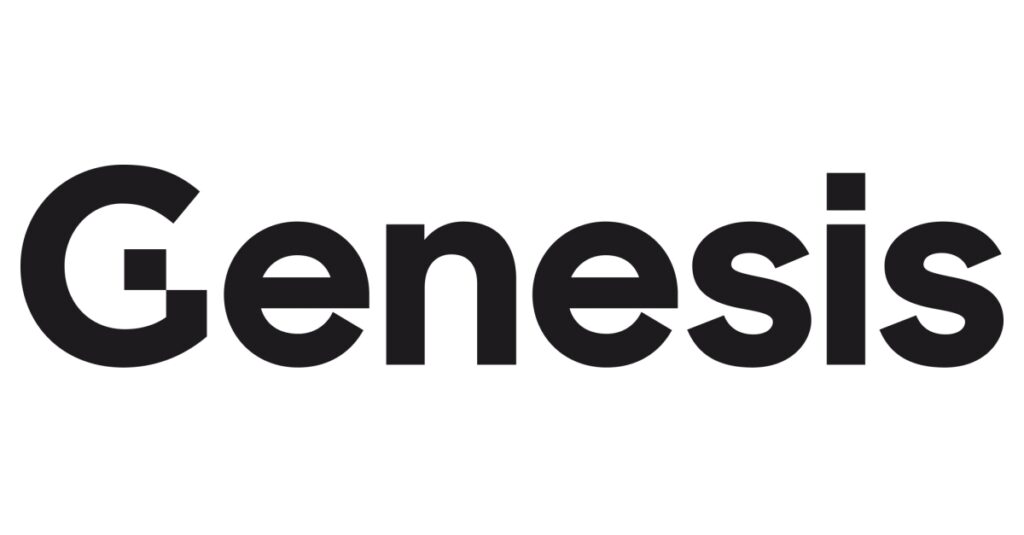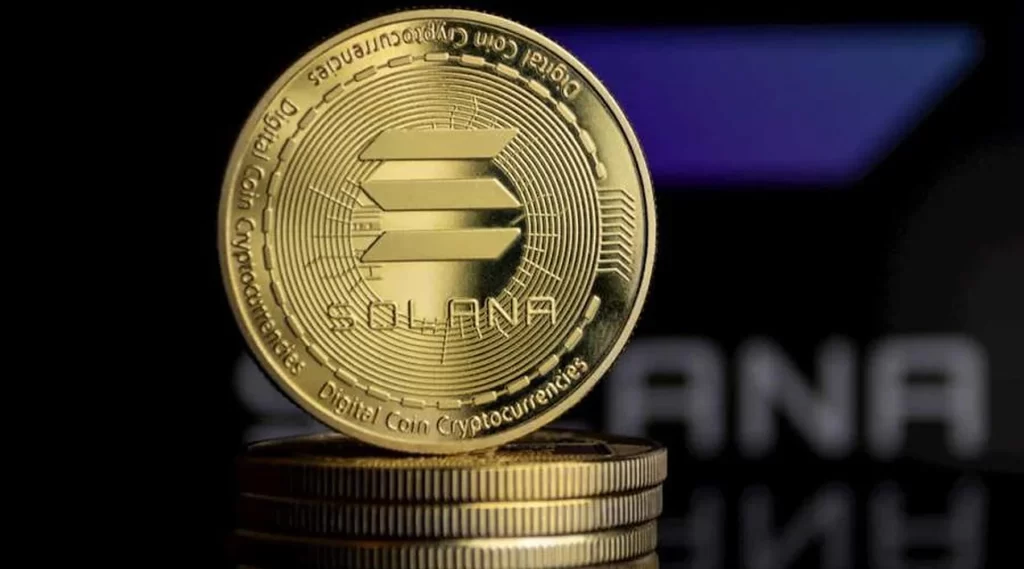Wise Lending, a Web3 lending app and yield aggregator, experienced a significant breach on January 12, resulting in the theft of 170 Ether (ETH), currently valued at $440,000.
This incident has been confirmed by multiple security experts, who suspect that the attacker may have exploited an oracle price using a flash loan.
The attack was recorded on the blockchain at 7:29 pm UTC, with the perpetrator utilizing an unverified contract featuring an address ending in “d82c” to siphon off the funds.
The attacker also moved various tokens into this contract, including $9,000 in USD Coin (USDC), $2,000 in Tether (USDT), $5,000 in Dai (DAI), 18.51 Wrapped Ether (WETH), valued at $47,694, and various tokens linked to Pendle Finance.
As part of the exploit, the attacker borrowed 1,110 Lido Staked Ether (stETH) tokens, which amounted to $2.9 million, from the Aave lending protocol.
Flash loans, commonly employed by exploiters, are used to manipulate oracle prices, enabling such attacks.
A pseudonymous blockchain security researcher known as Spreek first alerted the crypto community to the Wise Lending attack, posting on X (formerly Twitter), stating, “Looks like Wise Lending exploited for ~170 ETH.”
READ MORE: DeRec Alliance Unveils Ambitious Plan for Decentralized Digital Asset Recovery System
Spreek also speculated in a follow-up post that the vulnerability might be connected to a new Pendle Finance derivative token.
Another security researcher, Officer’s Notes, commented on the situation, remarking, “Another day, another exploit.”
Officer’s Notes suggested that the vulnerability may have been triggered by a 7% price swing between stETH and ETH within a particular pool, possibly due to an AAVE v2 stETH flash loan.
Although 2024 has just begun, the decentralized finance (DeFi) sector has already suffered losses of at least $5 million due to various exploits.
On January 3, Radiant Capital incurred losses exceeding $4.5 million, followed by liquidity manager Gamma Protocol losing over $400,000 to an exploit the next day.
In the previous year, 2023, the crypto industry witnessed losses totaling over $1.8 billion as a result of hacks, scams, and exploits, as reported by blockchain security platform Certik.
These incidents underscore the ongoing challenges and security concerns within the crypto space.
BlackRock CEO Larry Fink expressed skepticism regarding the practicality of using Bitcoin for everyday transactions, emphasizing that it should be recognized primarily as an asset class rather than a currency.
During an interview with CNBC on January 11, Fink reiterated his belief in Bitcoin as an alternative form of wealth storage, downplaying its potential to replace national currencies.
Fink stated, “I don’t believe it’s ever going to be a currency. I believe it’s an asset class.” He firmly believes that Bitcoin’s primary role is as a store of value.
However, Fink is more optimistic about the emergence of central bank digital currencies (CBDCs) in the near future.
He foresees the development of digital currencies that leverage blockchain technology, saying, “I think we’re going to create digital currencies, we’re going to use technology for it. We’re going to use a blockchain.”
Recent data from Cointelegraph reveals that over 100 countries are exploring the development of CBDCs, with 39 countries already piloting, testing, or launching CBDC initiatives.
READ MORE: Turkey Gears Up for Cryptocurrency Regulation Overhaul
When asked about ARK Invest CEO Cathie Wood’s Bitcoin valuation predictions, ranging from $600,000 to $1 million, Fink indicated that price speculation wasn’t his primary focus at the moment.
He emphasized his current priority, which is the launch of BlackRock’s newly approved spot Bitcoin exchange-traded fund (ETF), aimed at providing an instrument for storing wealth.
Fink added, “I think if it gets even close to that high, gold will represent even a bigger value. And let’s be clear, if you think it’s digital gold, there’s going to be a reference point between gold and Bitcoin.”
In a separate interview with Fox Business on the same day, Fink highlighted that the approval of the Bitcoin ETF by the United States Securities and Exchange Commission (SEC) signifies the legitimization of the cryptocurrency industry and will enhance safety for investors.
BlackRock’s ETF approval came alongside approvals for 10 other similar products.
Since receiving approval for its Bitcoin ETF, BlackRock has garnered an impressive record of 576 ETF approvals with only one rejection, underscoring its growing influence and prominence in the world of exchange-traded funds.
Terraform Labs co-founder, Do Kwon, has formally petitioned the United States District Court for the Southern District of New York to delay his impending trial until March.
The grounds for this request are based on the complexities surrounding his extradition proceedings in Montenegro, which have not progressed as swiftly as initially anticipated.
In a letter submitted on January 11 and addressed to Judge Jed Rakoff, Kwon’s legal representatives stressed his strong desire to be present at the trial, which is currently slated for January 29.
Unfortunately, they had previously expected Kwon to have returned to the United States by this time, stating, “Mr. Kwon wishes to attend his trial.
Counsel had hoped the extradition proceedings in Montenegro would proceed more quickly than they have.”
The Securities and Exchange Commission (SEC) had filed charges against Kwon in February 2023, accusing him of involvement in a massive cryptocurrency securities fraud scheme worth billions of dollars.
These allegations were closely linked to the collapse of Terraform Labs’ stablecoin, TerraUSD (USTC), and its associated Terra (LUNA) token.
Kwon’s legal team acknowledged the urgency of the trial but indicated that the January trial date would be unfeasible for him to attend.
READ MORE: U.S. SEC Approval of Bitcoin ETF Sparks Global Crypto Market Frenzy
They proposed, “We understand the Court cannot put the trial on hold indefinitely, but an adjournment until mid-March would provide a realistic possibility for Mr. Kwon to attend,” in their letter.
Notably, in December 2023, the Appellate Court of Montenegro took a significant step by annulling the decision of the High Court of Podgorica, which had initially approved Kwon’s extradition to either the United States or South Korea.
Only a week earlier, reports had emerged that both U.S. and South Korean authorities were requesting Kwon’s continued detention for an additional two months after the completion of his current sentence.
There is growing speculation regarding the possibility of Kwon facing multiple sentences in both countries.
Kwon’s legal troubles began in March 2023 when he was apprehended in Montenegro while attempting to leave the country using falsified travel documents.
His legal team’s request for a trial delay until March is underpinned by the intricate and evolving extradition challenges he faces, further underscoring the complexity of his legal predicament.
Cryptocurrency firm Genesis Global Trading has reached an agreement with the New York Department of Financial Services (NYDFS), resulting in the cessation of its operations within the state.
This development, disclosed on January 12, involves Genesis agreeing to pay an $8-million penalty to the NYDFS and the surrender of its BitLicense, a license the company had held since 2018.
The settlement stems from an investigation conducted by New York authorities, which unveiled significant deficiencies in Genesis’ Anti-Money Laundering (AML) and cybersecurity programs.
NYDFS Superintendent Adrienne Harris expressed concern over Genesis Global Trading’s lack of a functional compliance program, asserting that it demonstrated a disregard for regulatory requirements and potentially exposed both the company and its customers to security threats.
It’s important to note that this settlement exclusively pertains to Genesis Global Trading, and it is not associated with Genesis Global Capital.
In a separate legal matter, New York’s attorney general had filed a lawsuit against Genesis Global Capital, Gemini, and Digital Currency Group in October.
READ MORE: Bitcoin Surges as U.S. Inflation Data Sparks Crypto Market Anticipation
This lawsuit alleged that the companies had engaged in fraudulent activities through the Gemini Earn program, targeting investors.
Genesis Global Trading, however, did not follow its parent company’s path of filing for Chapter 11 bankruptcy protection in January 2023.
A spokesperson for the firm confirmed that Genesis Global Trading had ceased its operations in September 2023 and had taken substantial corrective measures to address the concerns raised by the NYDFS.
This settlement is part of a broader context in which concerns have been raised regarding the oversight of BitLicense applicants by the NYDFS. Since 2015, cryptocurrency firms operating within New York have been required to obtain a BitLicense from the regulatory authority.
The Genesis Global Trading case underscores the NYDFS’s commitment to enforcing regulatory compliance and maintaining the integrity of the cryptocurrency market in the state of New York.
In a jaw-dropping turn of events within the Solana ecosystem, a maximum extractable value (MEV) bot, under the management of an entity known as 2fast, astoundingly amassed a staggering $1.7 million in profits from a single, eyebrow-raising trade involving the memecoin Dogwifhat (WIF).
This peculiar transaction unfolded when a trader decided to acquire $9 million worth of WIF in the “most inefficient way possible.”
The MEV bot’s ingenious maneuver commenced by exchanging 703 Solana (SOL) tokens for a substantial 490,000 WIF tokens.
In a twist of fate, it further transformed this identical amount of WIF into a remarkable 19,035 SOL tokens within the same transaction bundle. As per Solscan data, this strategic move culminated in a jaw-dropping profit of $1.73 million.
MEV bots, automated algorithms programmed to scour blockchain networks for lucrative trading opportunities, executed this awe-inspiring feat. They identify promising opportunities and execute orders automatically to maximize gains.
The MEV bot harnessed a cutting-edge tool developed by Jito Labs, the developmental wing of Solana’s liquid staking protocol, Jito.
Functioning much like flashbots on Ethereum, this tool empowers bots to seek out maximum extractable value and submit bids for inclusion in transaction bundles.
READ MORE: CFTC Issues Recommendations to Mitigate DeFi Risks in U.S. Financial Markets
This remarkable arbitrage opportunity unfolded after a monumental $8.9 million purchase of WIF by a lone trader known as zeroxtrading.sol.
The colossal bid was placed in a low-liquidity pool, resulting in the order being fulfilled at an astonishing rate of approximately $3 per WIF token – a whopping 1,400% higher than its prevailing market value at the time.
Regrettably, the immediate aftermath of this transaction witnessed the trader’s funds plummeting by a staggering 92%.
On January 11, a pseudonymous developer going by the name Pland disclosed on X (formerly Twitter) that the MEV bot implemented a relatively straightforward backrunning strategy.
This tactic enabled the bot to capitalize on the trader’s inefficient execution of the WIF order without disrupting the initial trade.
It’s important to note that backrunning is generally perceived as less harmful to blockchain networks compared to the more malicious “sandwich” attacks, which manipulate order pricing to the detriment of users.
In the wake of this extraordinary transaction, the price of WIF briefly soared to as high as $4. While the trader experienced substantial losses due to the misguided order, this eye-catching event prompted enthusiastic traders to once again invest in WIF.
Consequently, the memecoin surged by an impressive 50% from the point immediately following the dramatic drop.
OpenAI, the artificial intelligence (AI) developer, is currently in negotiations with prominent corporate giants such as CNN, Fox Corp., and Time, as reported by Bloomberg.
The aim of these discussions is to secure licensing agreements for their news content, with the ultimate goal of enhancing the accuracy and timeliness of OpenAI’s AI chatbots.
OpenAI is actively exploring partnerships with these media powerhouses to leverage their extensive repertoire of news, video, and digital media content.
For instance, OpenAI is in talks with CNN to obtain licenses for articles that will be used to train ChatGPT and potentially feature CNN’s content in OpenAI products. Both CNN and Fox are exploring licensing options for text, video, and imagery.
In a significant move, Fox Corp. announced on January 9th the launch of a blockchain platform based on Polygon.
This platform is designed to validate the usage of its content by AI companies, reinforcing the protection of its intellectual property.
Jessica Sibley, Time’s CEO, expressed optimism about reaching an agreement with OpenAI, emphasizing the importance of a fair valuation for their content.
As of now, OpenAI’s ChatGPT-3.5, which is freely accessible to the public, relies on training data only up until January 2022.
However, in September 2023, OpenAI introduced a pivotal development, allowing its premium and enterprise models running ChatGPT-4 to access the internet and operate without the constraints of a specific training timeline.
READ MORE: Bitcoin Acceptance Surges: Number of Merchants Tripled Globally in 2023
This forward-looking initiative aims to preemptively address potential copyright infringement issues for OpenAI.
These efforts come amidst a backdrop of mounting legal challenges against OpenAI, with allegations of copyright violations stemming from the use of content in AI training.
The New York Times filed a significant lawsuit on December 27th, asserting that OpenAI’s utilization of their content did not constitute “fair use” and posed a threat to their journalistic endeavors.
Subsequently, on January 9th, OpenAI responded officially to The New York Times’ lawsuit, dismissing it as “without merit.”
OpenAI further affirmed its ongoing discussions with media organizations regarding collaborations and content licensing, emphasizing its commitment to forging partnerships that integrate AI seamlessly into the media landscape.
Additionally, another lawsuit was filed by authors Nicholas Basbanes and Nicholas Gage, advocating for compensation to copyright owners for their work used in AI training.
OpenAI’s strategic pursuit of licensing agreements with media entities is poised to mitigate future copyright-related challenges, fostering a collaborative ecosystem in the AI and media industries.
Asset management firm Vanguard may not be directly offering Bitcoin exchange-traded funds (ETFs) on its platform, but it has a notable connection to the cryptocurrency space through its ownership of a substantial stake in MicroStrategy (MSTR).
As of September 2023, Vanguard Group was found to hold a significant 8.24% ownership stake in MicroStrategy, making it the second-largest institutional shareholder in the company, with a whopping 1,126 million MSTR shares in its portfolio, according to data from Yahoo Finance.
Moreover, MicroStrategy’s stock also features in the holdings of several of Vanguard’s mutual funds, including the Vanguard Total Stock Market Index Fund, Vanguard Small-Cap Index Fund, Vanguard Extended Market Index Fund, and Vanguard Small-Cap Growth Index Fund.
MicroStrategy itself has established a robust connection with Bitcoin, with its balance sheet carrying a substantial exposure to the cryptocurrency.
Over the past years, MicroStrategy and its subsidiaries have accumulated a total of 189,150 BTC, with a collective purchase price of approximately $5.9 billion.
READ MORE: U.S. SEC Approval of Bitcoin ETF Sparks Global Crypto Market Frenzy
This has led some analysts to characterize MicroStrategy as essentially functioning as a leveraged Bitcoin ETF, given the significant impact of Bitcoin on its stock price in 2023.
In contrast, Vanguard has maintained a somewhat distant stance from the cryptocurrency market.
Despite the debut of spot Bitcoin ETFs by several asset managers on major Wall Street exchanges on January 11, Vanguard chose to block the purchase of such products.
They cited a misalignment with their vision and emphasized their focus on traditional asset classes like equities, bonds, and cash, which they consider the foundational components of a well-balanced, long-term investment portfolio.
Nonetheless, Vanguard’s indirect yet substantial exposure to Bitcoin through its MicroStrategy holdings implies that fluctuations in Bitcoin’s price can affect the performance of its mutual funds and the value of its MSTR shares.
For Vanguard clients, this represents an indirect means of gaining exposure to the cryptocurrency through the firm’s investment platform.
In the rapidly evolving crypto landscape, various firms anticipate a surge in Bitcoin-related products in the coming months, including leveraged and short Bitcoin ETFs, as well as crypto loans collateralized by Bitcoin.
In Rosario, the third-largest city in Argentina, a unique rental agreement has been struck between a local landlord and a tenant.
This groundbreaking contract marks the first instance in Argentina where monthly rent will be paid in Bitcoin.
This innovative arrangement was made possible by recent legislative changes implemented by the country’s new presidential administration.
Under the terms of this historic contract, the tenant will be responsible for making monthly payments equivalent to $100 in Bitcoin.
These transactions will be facilitated through Fiwind, a local cryptocurrency platform.
Notably, both parties involved in this contract are experienced cryptocurrency users, signaling a growing acceptance of digital currencies in the region.
The shift towards embracing cryptocurrencies in Argentina can be attributed to the reforms introduced by President Javier Milei, who assumed office after winning the general election in November 2023.
READ MORE: How Playable Ads Are Set to Reinvigorate the Streaming and Digital Content Industry
The nation was grappling with soaring inflation rates, prompting the need for significant changes in vario
us aspects of the legal system, including rental laws.
In December 2023, Diana Mondino, the Minister of Foreign Affairs, International Trade, and Worship, announced a pivotal decree aimed at promoting economic reform and deregulation.
This decree opened the door for the utilization of Bitcoin and other cryptocurrencies within the country, albeit with certain conditions.
One of the notable changes in the regulatory landscape was the government’s efforts to facilitate the legalization of cryptocurrency holdings, even for individuals who were behind on their tax declarations.
A regularization scheme was introduced, allowing taxpayers to declare their cryptocurrency assets with a flat tax rate of 5% if done by the end of March 2024.
This rate would then increase to 10% from April and further to 15% from July until the end of September.
These recent developments signify Argentina’s growing recognition of the potential of cryptocurrencies as a viable means of conducting financial transactions and fostering economic growth.
With this groundbreaking rental agreement in Rosario, the country takes another step towards embracing the digital currency revolution, potentially setting a precedent for similar arrangements in the future.
Ether has surged over 20% against Bitcoin within just 72 hours, and traders are anticipating further upward movement.
Data from Cointelegraph Markets Pro and TradingView reveals that ETH/BTC, which hit yearly lows of 0.0478 on January 9th, has now climbed to 0.0587.
ETH/USD is also experiencing a breakout, reaching levels not seen on the chart since mid-2022.
A bullish divergence on the moving average convergence divergence (MACD) indicator on weekly timeframes against Bitcoin has caught the attention of popular traders.
This week, Ethereum, the largest altcoin, has outperformed Bitcoin in terms of returns, even as Bitcoin celebrates the launch of spot exchange-traded funds (ETFs) in the United States.
Despite BTC/USD reaching its highest levels since the post-ETF announcement in December 2021, Ether’s resurgence seems to overshadow it.
The anticipation of Ethereum’s U.S. ETF debut later in the year has added to the bullish sentiment.
BlackRock’s CEO, Larry Fink, who recently released a Bitcoin ETF, expressed interest in a similar move for Ether, which further fueled optimism around Ethereum.
READ MORE: Turkey Gears Up for Cryptocurrency Regulation Overhaul
“Larry Fink is already beating the Ethereum drum. One day after the Bitcoin launch,” responded trader and analyst Scott Melker, also known as “The Wolf Of All Streets,” on X (formerly Twitter). “The rotation is real.”
Looking ahead, Michaël van de Poppe, founder and CEO of trading firm MNTrading, believes that Ether will continue to gain ground against Bitcoin as part of the overall cryptocurrency market cap.
He suggested that Bitcoin’s dominance appears to have peaked, especially in anticipation of the Bitcoin halving.
“Expecting to see a continuation as Ethereum is taking more momentum.
This might be the cycle’s high on the Dominance as the altcoin bull market has started,” said Van de Poppe.
He also pointed out that attention may shift away from BTC/USD until after the block subsidy halving in April, which is considered a price catalyst, albeit not an immediate one.
Meanwhile, the ETF narrative suggests a potential Bitcoin supply squeeze as institutions seek long-term exposure to BTC.
This factor could further impact the dynamics between Ethereum and Bitcoin in the coming months.
The United States House of Representatives Financial Services Committee (FSC) has taken a significant step in addressing the growing impact of artificial intelligence (AI) on the financial services and housing industries.
On January 11, 2024, FSC Chairman, Representative Patrick McHenry, and Representative Maxine Waters jointly announced the establishment of a bipartisan Working Group on Artificial Intelligence.
The primary objective of this working group is to delve into the multifaceted implications of AI in the financial services sector.
This includes an examination of how AI is reshaping the financial services workforce by driving the development of new products, fortifying defenses against fraud, streamlining compliance processes, and bolstering regulatory tools.
Another critical aspect of the group’s mission is to scrutinize the existing regulatory framework governing AI usage and ascertain that any new regulations are well-balanced, taking into account both the potential benefits and inherent risks associated with AI deployment.
This endeavor builds upon the groundwork laid by the Task Force on Artificial Intelligence in the 116th and 117th Congresses.
It is worth noting that this newly formed working group differs from the one established by the New Democratic Coalition in August 2023.
While both groups share a common objective of crafting bipartisan policies to address the evolving AI landscape, the FSC’s AI working group boasts a truly bipartisan composition, comprising members from both the Democratic and Republican parties.
READ MORE: DeRec Alliance Unveils Ambitious Plan for Decentralized Digital Asset Recovery System
Heading the bipartisan group are Representative French Hill, Chairman of the Digital Assets, Financial Technology, and Inclusion Subcommittee, and Representative Stephen Lynch.
This dedicated team brings together a diverse set of perspectives and expertise to tackle the complex issues surrounding AI.
Among the group’s Republican members are McHenry, Hill, Young Kim, Mike Flood, Zach Nunn, and Erin Houchin.
On the Democratic side, Waters, Lynch, Sylvia Garcia, Ayanna Pressley, Sean Casten, and Brittany Pettersen round out the lineup.
This development aligns with President Joe Biden’s Executive Order from October 30, 2023, which places a significant emphasis on the responsible development and use of AI.
The newly formed FSC working group will play a pivotal role in assessing and implementing the directives outlined in the Executive Order within the committee’s purview.
As AI continues to reshape the financial landscape, this bipartisan initiative signifies a commitment to ensuring that AI benefits are harnessed responsibly while mitigating potential risks.












